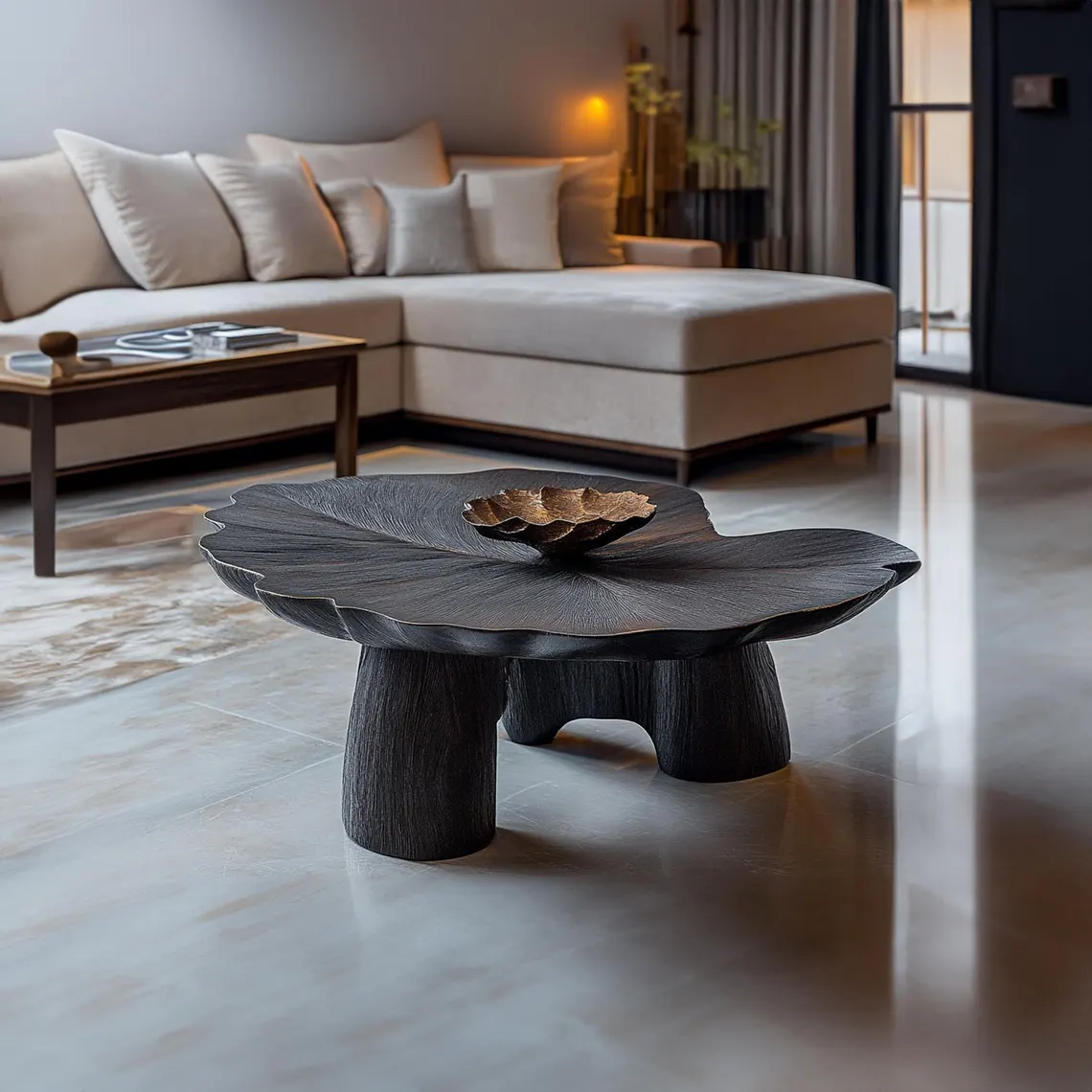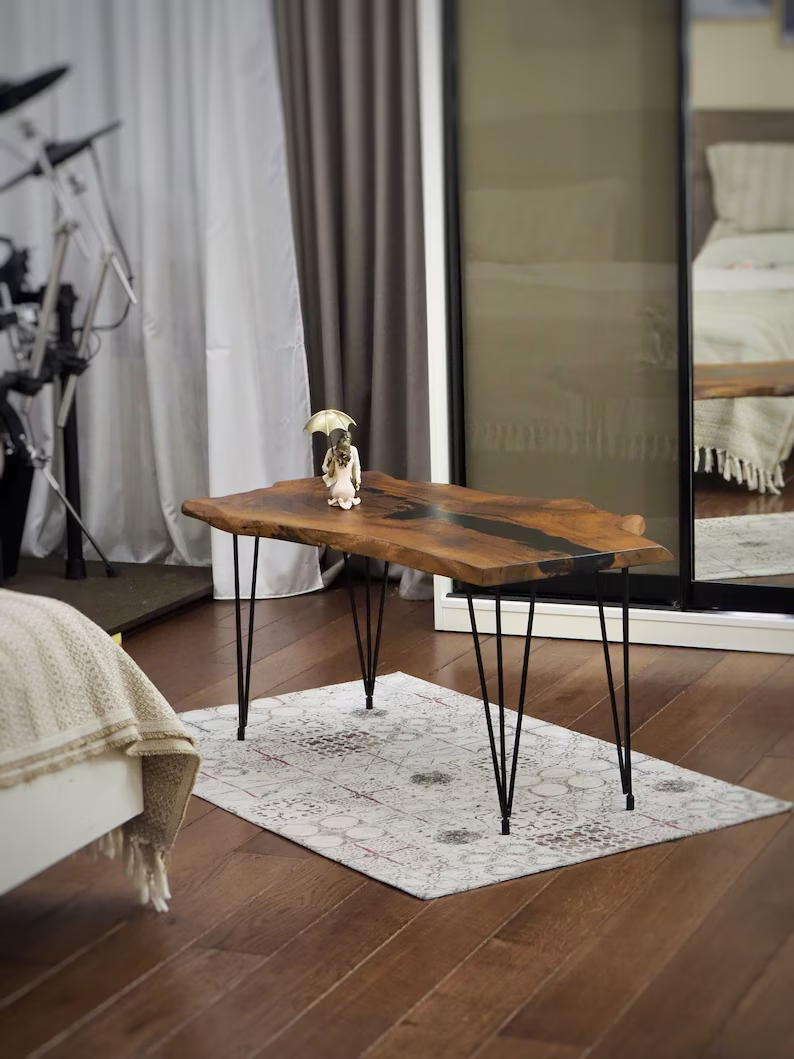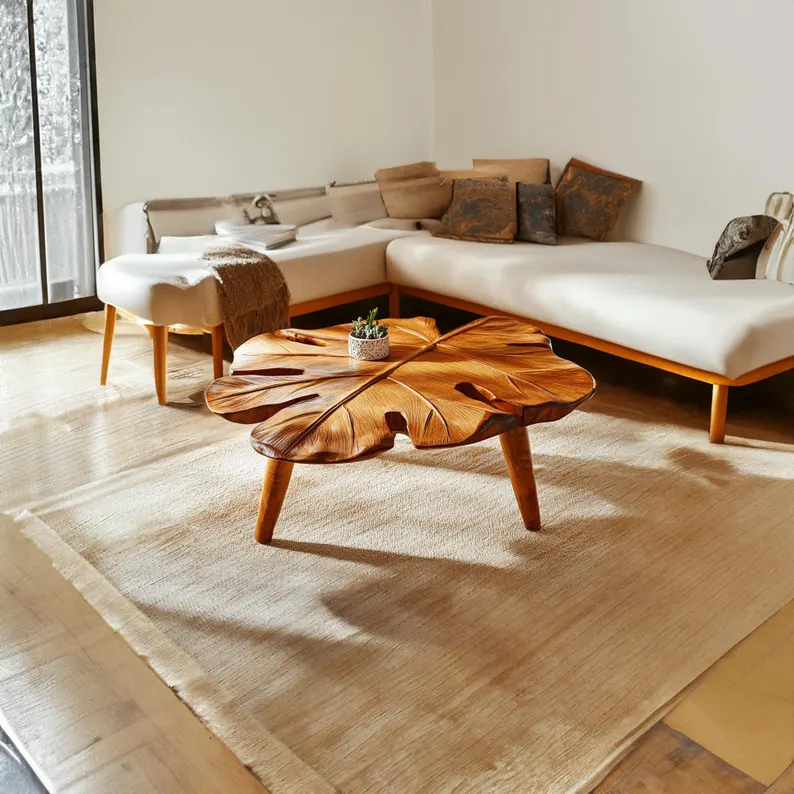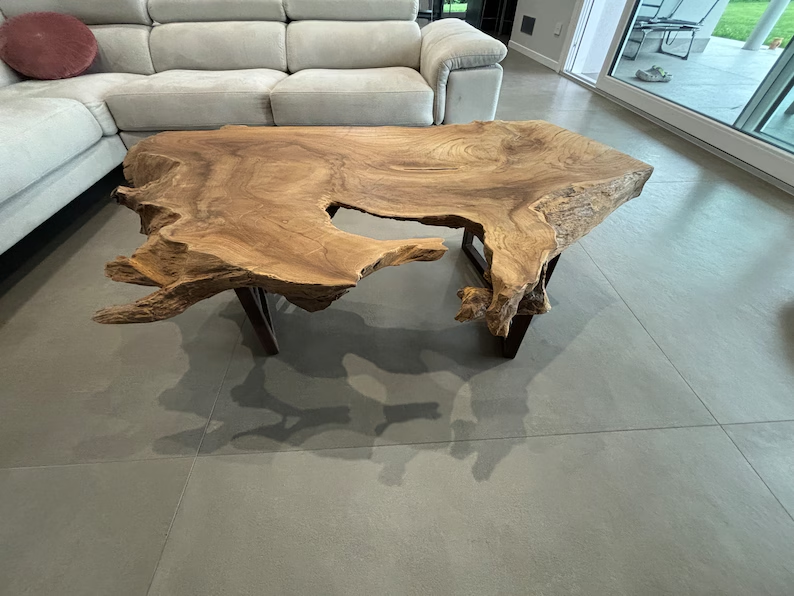When designing the perfect living room, selecting furniture that balances style, functionality, and durability is crucial. Among the myriad of choices available, a handmade rustic wood coffee table stands out as a timeless and versatile centerpiece. Combining natural aesthetics, craftsmanship, and practical benefits, this furniture choice not only enhances your living room’s appeal but also embodies a commitment to sustainability and individuality. In this essay, we will explore why a handmade rustic wood coffee table is an ideal addition to your living room, covering its aesthetic appeal, unique craftsmanship, environmental advantages, and long-lasting durability.
Aesthetic Appeal: Natural Beauty and Timeless Charm
One of the most compelling reasons to choose a handmade rustic wood coffee table is its inherent aesthetic appeal. Rustic wood furniture draws its beauty from the natural grains, textures, and tones of wood, which effortlessly add warmth and character to any living space. Whether your décor leans toward modern minimalism or embraces traditional coziness, a rustic coffee table can serve as a versatile focal point that ties the room together.
The organic imperfections in wood, such as knots and variations in grain, give each table a distinct personality. These imperfections are not flaws but rather hallmarks of authenticity, making every piece one-of-a-kind. Unlike mass-produced alternatives, a handmade table exudes charm that evolves over time, developing a rich patina that enhances its beauty and makes it a cherished heirloom.
Additionally, rustic wood coffee tables are incredibly adaptable to various interior design styles. Paired with soft textiles, they can create a cozy, cabin-like atmosphere. Alternatively, combining rustic wood with sleek metallic or glass accents brings an eclectic, modern touch to the space. Their timeless appeal ensures that they remain relevant, even as interior design trends evolve.

Unique Craftsmanship: A Celebration of Artisanal Skill
A handmade rustic wood coffee table showcases the skill and dedication of craftsmen who prioritize quality over quantity. Unlike factory-made furniture, where automation often compromises individuality, handmade tables carry the personal touch of the artisan who crafted them. This craftsmanship is reflected in the attention to detail, intricate joinery, and thoughtful design.
Choosing a handmade piece supports small businesses and local artisans, contributing to the preservation of traditional woodworking techniques. These artisans often take pride in using sustainable methods and locally sourced materials, ensuring that your coffee table is not only beautiful but also ethically made.
Customizable options are another significant advantage of handmade furniture. Many artisans offer clients the ability to personalize their pieces, from selecting the type of wood and finish to specifying dimensions and design features. This means you can tailor your rustic coffee table to fit your exact preferences and the unique requirements of your living room, creating a piece that is truly your own.

Sustainability: An Eco-Friendly Furniture Choice
In an era where environmental consciousness is increasingly important, opting for a handmade rustic wood coffee table aligns with sustainable living practices. Mass-produced furniture often relies on synthetic materials, chemical finishes, and processes that generate significant waste. In contrast, handmade wooden furniture is typically crafted from natural, renewable resources and involves less energy-intensive production methods.
Many artisans use reclaimed or salvaged wood to create rustic tables, giving new life to materials that might otherwise be discarded. This practice reduces deforestation and minimizes the carbon footprint associated with sourcing new timber. By choosing furniture made from reclaimed wood, you contribute to the circular economy while adding a unique narrative to your living room.
Moreover, the longevity of a well-crafted rustic wood coffee table reduces the need for frequent replacements. Unlike cheaper, mass-produced options that may wear out or break within a few years, a handmade table is built to last. Its durability ensures that it remains a functional and beautiful part of your home for decades, reducing waste and promoting sustainability.

Durability and Practicality: A Long-Lasting Investment
A handmade rustic wood coffee table is not only a design statement but also a practical and durable piece of furniture. Solid wood construction ensures strength and stability, allowing the table to withstand daily use and the occasional mishap. Whether you’re hosting a game night, enjoying coffee with friends, or using the table as a makeshift workspace, you can rely on its resilience.
The durability of wood also means that rustic coffee tables can endure the test of time, often outliving trends and remaining functional for generations. This long lifespan makes them a cost-effective choice in the long run, as you won’t need to replace them as frequently as cheaper alternatives.
Additionally, wood is a material that ages gracefully. Unlike synthetic materials that may fade or deteriorate, wood develops a character-rich patina over time. Minor scratches or dents can often be sanded out or incorporated into the table’s rustic charm, ensuring that it maintains its beauty despite years of use.
Practicality is another key feature of rustic wood coffee tables. They often include functional design elements such as built-in storage, shelves, or drawers, helping you keep your living room organized and clutter-free. The robust surface can accommodate everything from decorative items and books to trays of snacks and beverages, making it a versatile addition to your space.

Emotional and Cultural Value: More Than Just a Table
Beyond its physical attributes, a handmade rustic wood coffee table holds emotional and cultural significance. It is more than just a functional piece of furniture; it becomes a part of your home’s story. Whether it’s the table where your family gathers for board games or the spot where you enjoy quiet mornings with a cup of coffee, this piece of furniture can create lasting memories.
Handmade furniture also reflects cultural and regional craftsmanship, connecting you to the history and traditions of woodworking. Owning such a piece allows you to appreciate the artistry and heritage behind its creation, enriching your living space with meaning and purpose.
Furthermore, a rustic wood coffee table encourages mindful consumption. In a world dominated by disposable goods, investing in a handmade, high-quality item reflects a shift toward valuing longevity, artistry, and sustainability over convenience. This mindset fosters a deeper appreciation for the items we bring into our homes, promoting a more intentional and fulfilling lifestyle.
Conclusion
Choosing a handmade rustic wood coffee table for your living room is an investment in style, quality, and sustainability. Its natural beauty and timeless charm can enhance any décor, while its unique craftsmanship and customizable features ensure a piece that is both functional and personal. By supporting local artisans and opting for eco-friendly materials, you contribute to a more sustainable and ethical approach to furniture.
A rustic wood coffee table offers durability and practicality, making it a cost-effective and versatile addition to your home. Beyond its physical attributes, it carries emotional and cultural value, serving as a meaningful centerpiece for family moments and personal reflection.
In a world where mass-produced furniture often lacks character and quality, a handmade rustic wood coffee table stands as a testament to artistry, individuality, and environmental responsibility. It is a choice that transcends trends and elevates your living room into a space of beauty, comfort, and connection.

0 comments